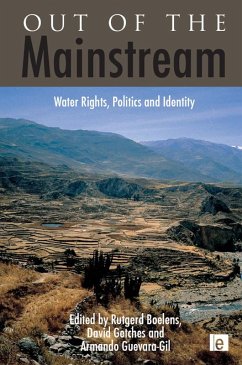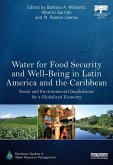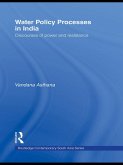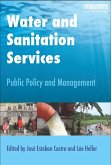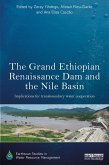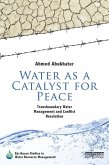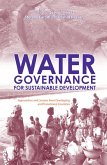Dieser Download kann aus rechtlichen Gründen nur mit Rechnungsadresse in A, B, BG, CY, CZ, D, DK, EW, E, FIN, F, GR, HR, H, IRL, I, LT, L, LR, M, NL, PL, P, R, S, SLO, SK ausgeliefert werden.
'Out of the Mainstream is one of the most powerful critiques of the neoliberal globalisation utopia I have ever read. In their careful and penetrating studies, the contributors reveal the rich and varied experiences of communal water systems, the struggles of local communities against neoliberal policies and their collective attempts to construct sustainable livelihoods.' Cristbal Kay, Emeritus Professor International Institute of Social Studies, The Hague, the Netherlands
'This book is a path breaking compilation of essays that include and provoke critical thinking about the law and politics of water allocation and power relationships. It reveals the failings of free market approaches linked to the global thirst for water and other resources, and provides needed guidance for reevaluating those approaches with attention to the wisdom and longstanding resource use practices of indigenous and other local communities.' -- S. James Anaya, Professor of Human Rights Law and Policy, University of Arizona; and United Nations Special Rapporteur on the Situation of Human Rights and Fundamental Freedoms of Indigenous People
'The mark of a groundbreaking book is that it sheds light on an enduring problem in an entirely new way. Tackling the critical confrontation between traditional and modern water systems, the authors bring convincing new field data and insights to the contentious debates surrounding the water crisis in the Andes and indigenous communities of North America.' -- Robert E. Rhoades, Distinguished Research Professor, University of Georgia, USA
'Out of the Mainstream is a solid addition to any political collection focusing on the environment.' Willis M. Buhle, The Midwest Book Review 'The EarthScan book breaks through many misconceptions about water rights and management to describe local and community use of water from the bottom-up.' Jeff Thurston, Vector One 'This book rejects a number of shibboleths among water professionals and replaces them with advice that emphasises fairness, community, and bottom-up democracy.' -- Helen Ingram, Water Alternatives
'This excellent collection examines market-generated water conflicts and responses at local, regional, and national levels in a set of case studies involving people and communities in the Andes and the US Southwest' -- B.F.Hope, Choice Magazine, October 2010

